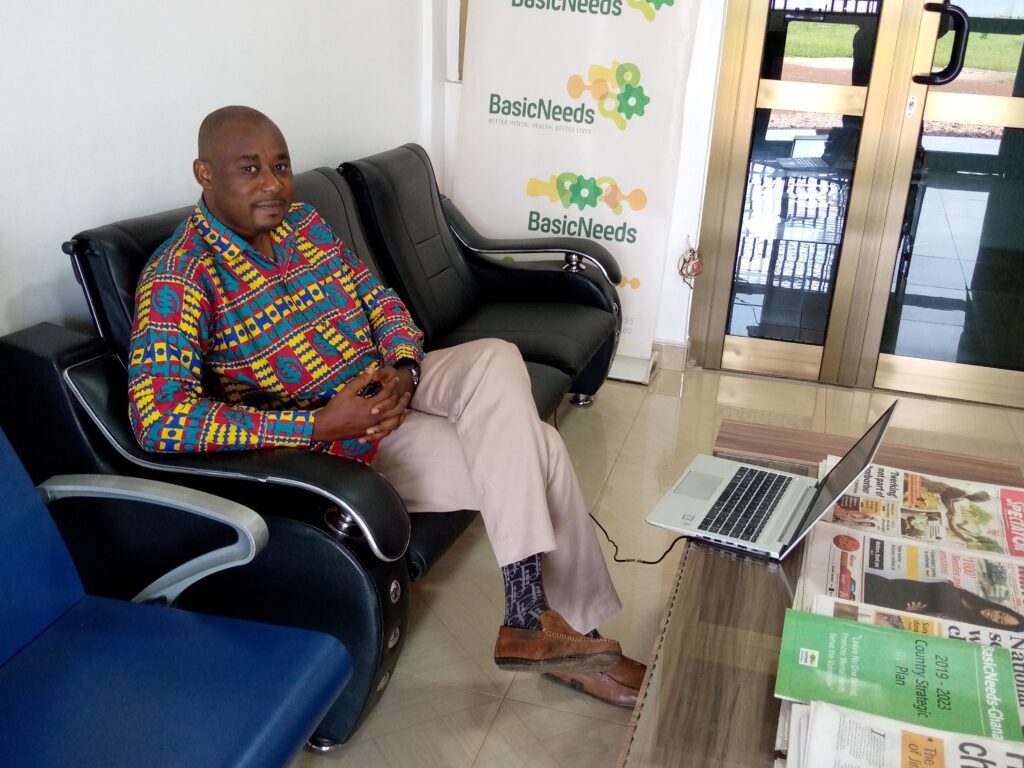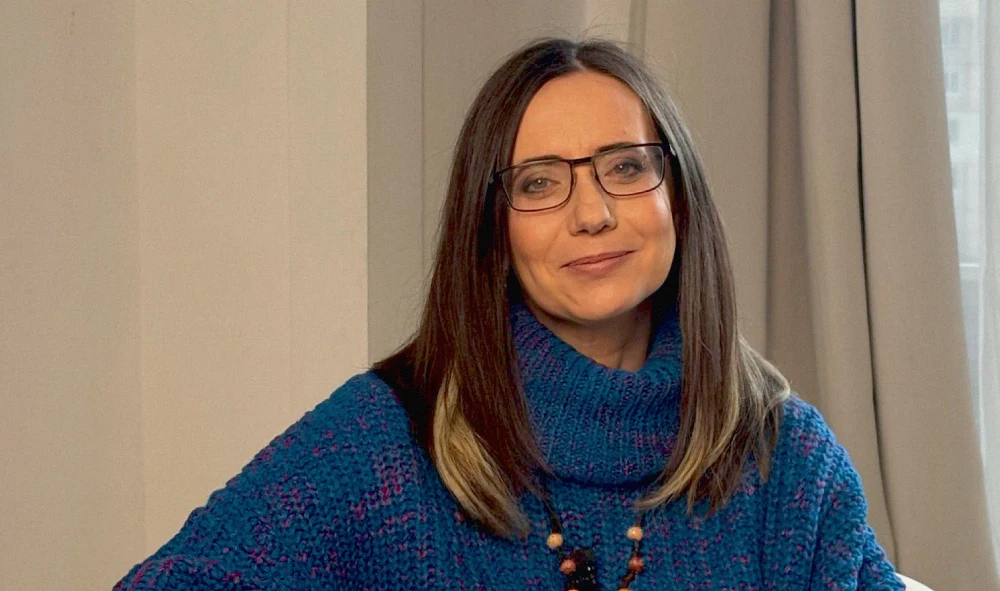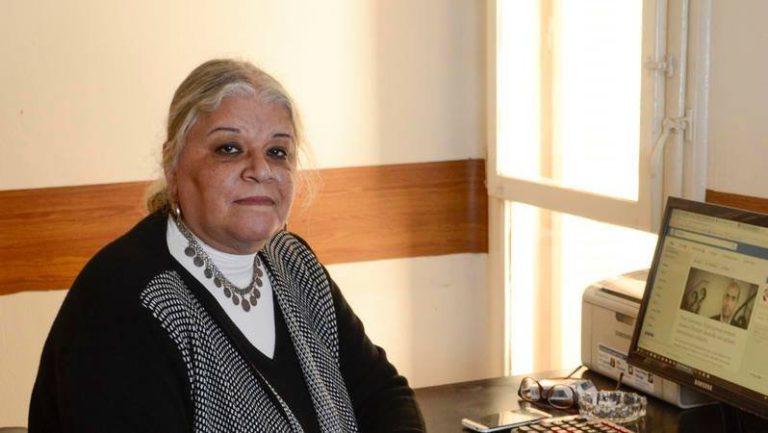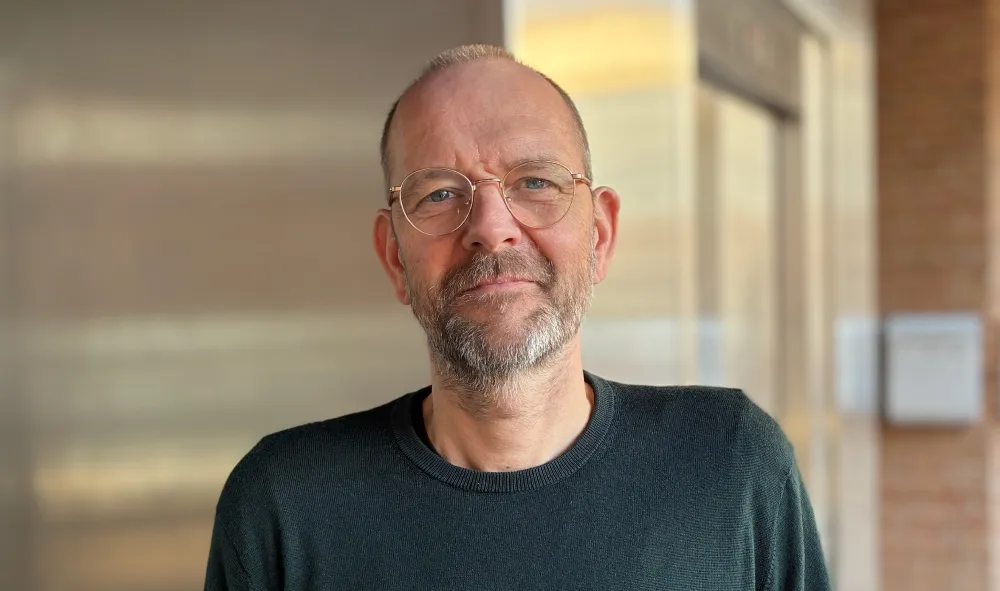A Ghanaian advocacy group has raised awareness about the problematic use of shackling and other forms of ill-treatment of mentally ill patients.
Still fewer persons with mental illnesses are shackled or locked up in cages in Ghana.
»This is a result of our advocacy work and our cooperation with DIGNITY«, explains Hannan Legend Hassan, who is a project officer at BasicNeeds-Ghana.
Persons with mental illnesses are still, in some parts of the country, exposed to abuses such as shackling, caging, flogging, force fasting, and dry shaving in prayer camps and traditional healing centres in Ghana. This happens despite the fact that significant progress has been made in recent years in providing a more humane treatment.
BasicNeeds-Ghana is a mental health and development organisation and Ghana’s main advocacy group in favour of better conditions for psychiatric patients and other vulnerable groups. The Ghanaian NGO has done advocacy work on the nature of torture, how to build resilience, the importance of rehabilitation, legal protection for victims, and capacity building of relevant stakeholders.
Since 2018, BasicNeeds-Ghana has worked with DIGNITY – funded by the Danish Ministry of Foreign Affairs – in order to prevent torture and other forms of degrading treatment of psychiatric patients.
Fighting against torture in Ghana
People with mental illness in Ghana are a particularly vulnerable group being exposed to stigmatisation and traumatisation by their surroundings.
Through a series of trainings, BasicNeeds-Ghana staff have learned about trauma, its consequences and simple coping strategies.
This knowledge has been passed on by BasicNeeds-Ghana to psychiatric nurses, volunteers, relevant stakeholders, and traditional and faith-based healers in joint trainings.
Trust in and understanding of each other’s work have resulted in cross referrals of patients in order to facilitate that people with mental illnesses receive the best possible treatment and care.
Alongside the capacity building of staff and their cooperation partners, DIGNITY has supported BasicNeeds-Ghana in their advocacy work, monitoring and evaluation as well as organisational development.
Traditionally, many patients with mental health issues in Ghana have been sent to prayer camps and traditional healers instead of formal psychiatric institutions. This practice has been widespread both in the Christian southern part of the West African country and in the predominantly Muslim, northern part.
Poverty
Poverty is one important reason why patients have been sent to prayer camps and traditional healers. Only recently, mental health and psychosocial support has become covered by Ghana’s national health insurance and this coverage still has shortcomings.
Another reason is the lack of psychiatric hospitals. All three of Ghana’s psychiatric hospital, Accra, Ankaful and Pantang, are located in the southern part of the country. A fourth is, however, planned in the northern region.
Health care professionals in the psychiatric sector have tended to be less qualified and ill motivated. This is improving gradually with the increasing prominence of mental health.
Many Ghanaians perceive mental illness as spiritual. According to a field study from 2019, the majority of those who use prayer camps and traditional healers do so because they believe that only spiritual intervention helps. Mental illness is, by many, seen as a spiritual attack from enemies or punishment from gods and ancestors.
Fear of stigmatisation
»Another obstacle has been the fear of stigmatisation«, explains Hannan Legend Hassan. »If you receive treatment in a psychiatric hospital, your file will be in the system. And many patients don’t want that. Traditional healers will keep no records of you«.
A number of Christian prayer camps are scattered around Ghana. They are run by so-called charismatic preachers without any training or certification. The practice of shackling and caging mentally ill persons continues to be criticised by, among others, Human Rights Watch.
»In the prayer camps they haven’t got the drugs and physical restraints to pacify an aggressive patient. So, it has been a widespread practice to use chains, ropes, and cages to control them and prevent them from being violent. This practice, obviously, amounts to torture«, says Hannan Legend Hassan.
BasicNeeds-Ghana has come a long way in advocating for a more humane treatment of mentally ill persons. The Ghanaian Mental Health Act of 2012, which is partly a result of BasicNeeds-Ghana’s advocacy work, prohibits subjecting persons with mental disorders »to torture, cruelty, forced labour and any other inhuman treatment«.
Still problems in parts of Ghana
The law from 2012, however, did not make the problem go away overnight. Some challenges persist, especially in rural parts of Ghana.
»Since 2012, we have been going through a number of stages. We have raised awareness and step by step managed to reduce the number of mentally ill persons who are chained or forced to live in cages. It still happens in some prayer camps in very inaccessible parts of the country. But we have made good progress«, says Hannan Legend Hassan.
The latest important step forward has been the establishment of Ghana’s Mental Health Review Tribunal and Visiting Committee in November 2022. The Tribunal has the authority to visit and inspect any location where psychiatric patients live.
»The beauty of it is that they can visit unannounced. And we will make sure to tip them off about places to visit when we hear about problems«, says Hannan Legend Hassan.
BasicNeeds-Ghana’s five-year project with DIGNITY from 2018 to 2023 has been about relationship building and creating a dialogue between the formal mental health care providers and the prayer camps and traditional healers in four areas of Ghana – two in and around the capital of Accra in the southern, coastal part of Ghana and two in northern Ghana.
Most of the informal and traditional care providers have now been persuaded not to employ methods that amount to torture and welcome formal health care providers in the form of psychiatrists and psychiatric nurses in their facilities. When patients are referred to psychiatric hospitals by traditional healers, the traditional healers have started to share information about the treatment of the patients. This could indicate an increased confidence in the formal psychiatric institutions. The most significant progress has been achieved in the four areas where the joint project was focused.
The end of the project is now in sight.
»A focal point of our work in the coming years will be to maintain a close dialogue with the new Tribunal and Visiting Committee, and contribute to the education of its members«, says Hannan Legend Hassan.





